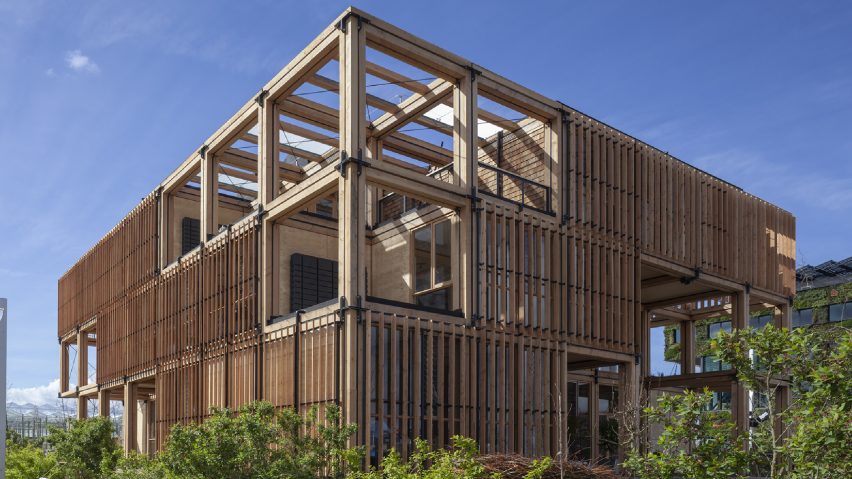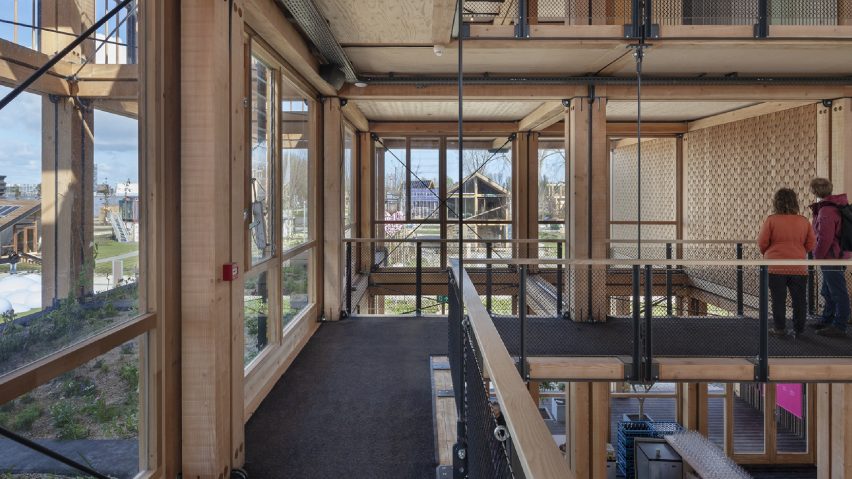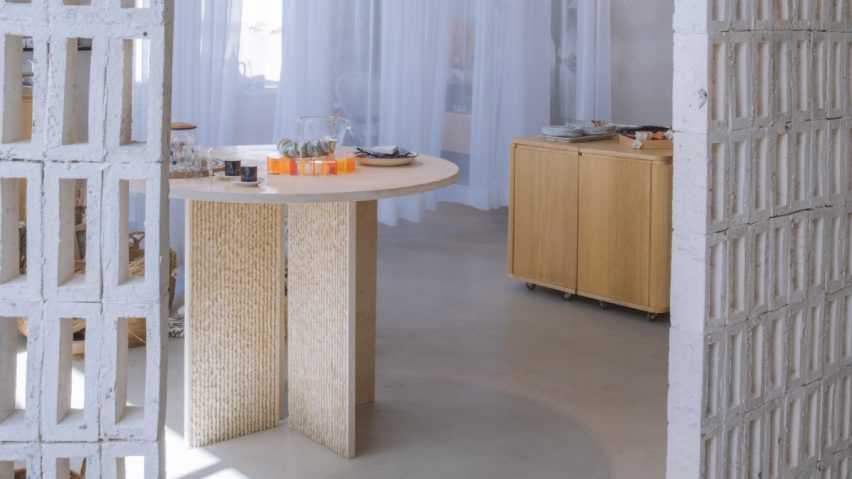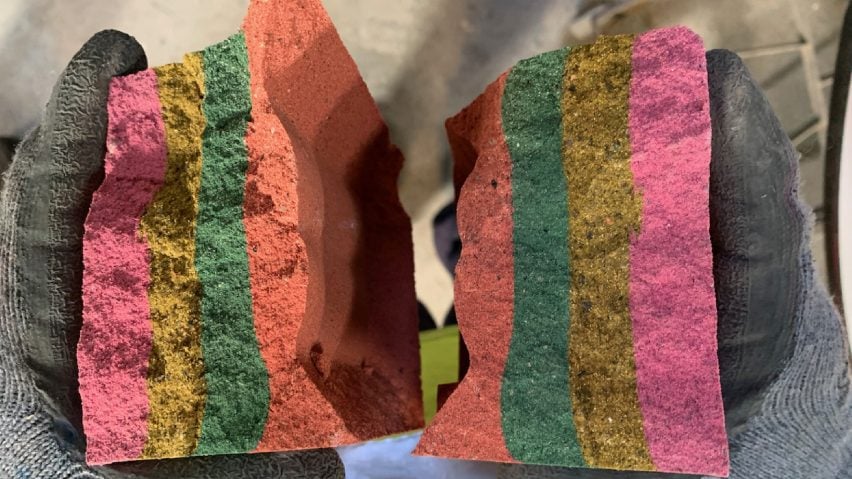
Dezeen Awards 2022 sustainability public vote winners include a bio-based pavilion in the Netherlands
After more than 4,000 votes, Dezeen readers have chosen projects by DP6 Architectuurstudio, FADAA and Kenoteq as the winners of this year's Dezeen Awards public vote in the sustainability categories.
DP6 Architectuurstudio won for its pavilion made from locally sourced wood and recycled-steel joints in the Netherlands, FADAA for its store coated in grey lime plaster in Jordan and Kenoteq for its brick made from construction waste.
Of the total 55,000 votes that were cast and verified across all categories, the sustainability categories received over 4,000 verified votes.
Dezeen Awards 2022 public vote winners in the architecture, interiors and design categories were published earlier this week, the media winners will be revealed later today and the studio winners will be unveiled tomorrow.
Dezeen Awards winners announced in November
The public vote is separate from the main Dezeen Awards 2022 judging process, in which entries are scored by our distinguished panel of judges. We'll be revealing the Dezeen Awards 2022 winners ahead of the winners' party at the end of November.
To stay up to date with the latest Dezeen Awards news, including this year's winners, subscribe to our newsletter or follow us on Instagram and LinkedIn.
Read on to see who was voted most popular in the sustainability categories:

Sustainable building
The Natural Pavilion serves as a model to tackle construction challenges faced in the Netherlands, including sustainable energy production, housing shortages, biodiversity recovery and climate change adaptation.
The structure by DP6 Architectuurstudio, which features cross-laminated timber floors and recycled glass windows, was voted sustainable building of the year in the public vote with 29 per cent of votes.
In close pursuit was Mustardseed by Localworks with 25 per cent, Floating Office by Powerhouse Company with 23 per cent, The Exploded View Beyond Building by Biobased Creations with 12 per cent and finally Learning and Sports Centre by General Architecture Collaborative with 11 per cent.

Sustainable interior
D/O Aqaba won sustainable interior of the year with 26 per cent of the votes. The store by FADAA uses stacked bio-bricks made from crushed shells as partitions to protect from the sun and segment the space.
Next up was Apricity by Object Space Place with 23 per cent, Semba Good Ethical Office by Semba Corporation with 20 per cent, The Circus Canteen by Multitude of Sins with 19 per cent and MONC by Nina+Co with 13 per cent.

Sustainable design
K-Briq was developed through academic circular economy research at Heriot Watt University in Scotland and won the sustainable design of the year category with 35 per cent of votes. Kenoteq's design is made from construction waste and is coloured using recycled pigments.
The runners-up were Tidal Stool by Robotic Fabrication Lab HKU with 28 per cent, Remix by Open Funk with 18 per cent, Maggie's Southampton by Local Works and Air-It-Yourself by Jihee Moon with seven per cent.

